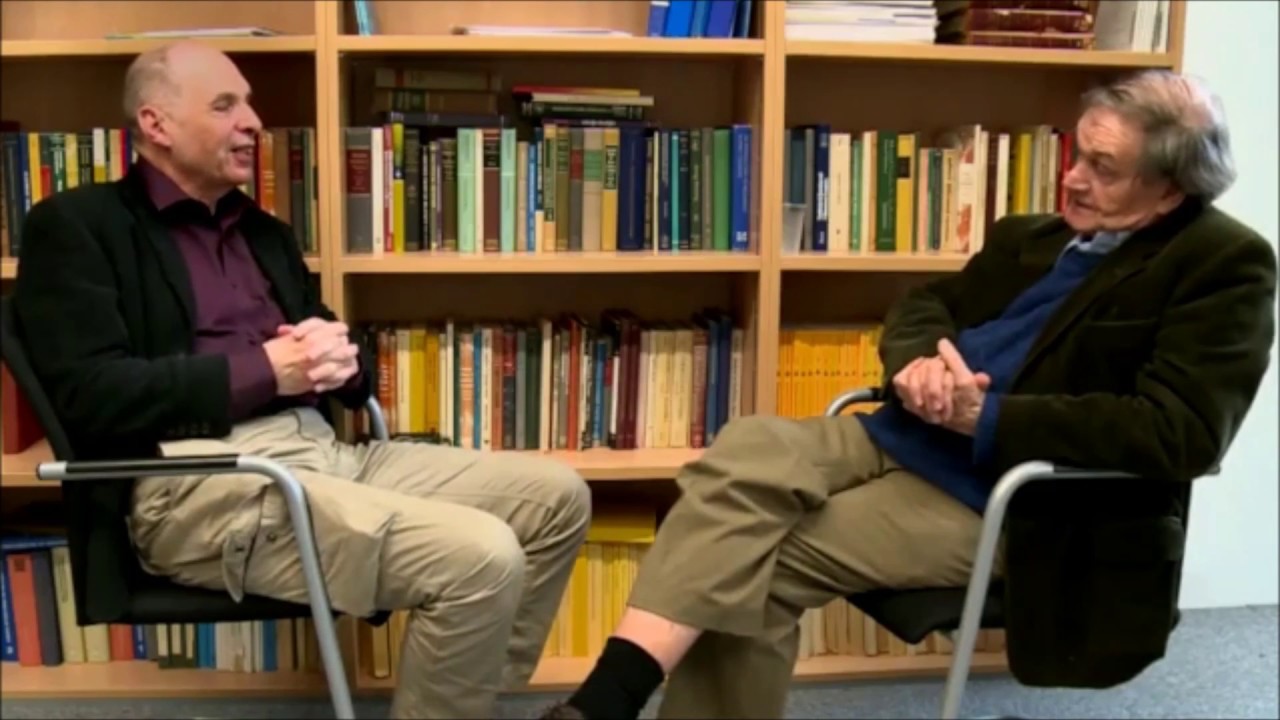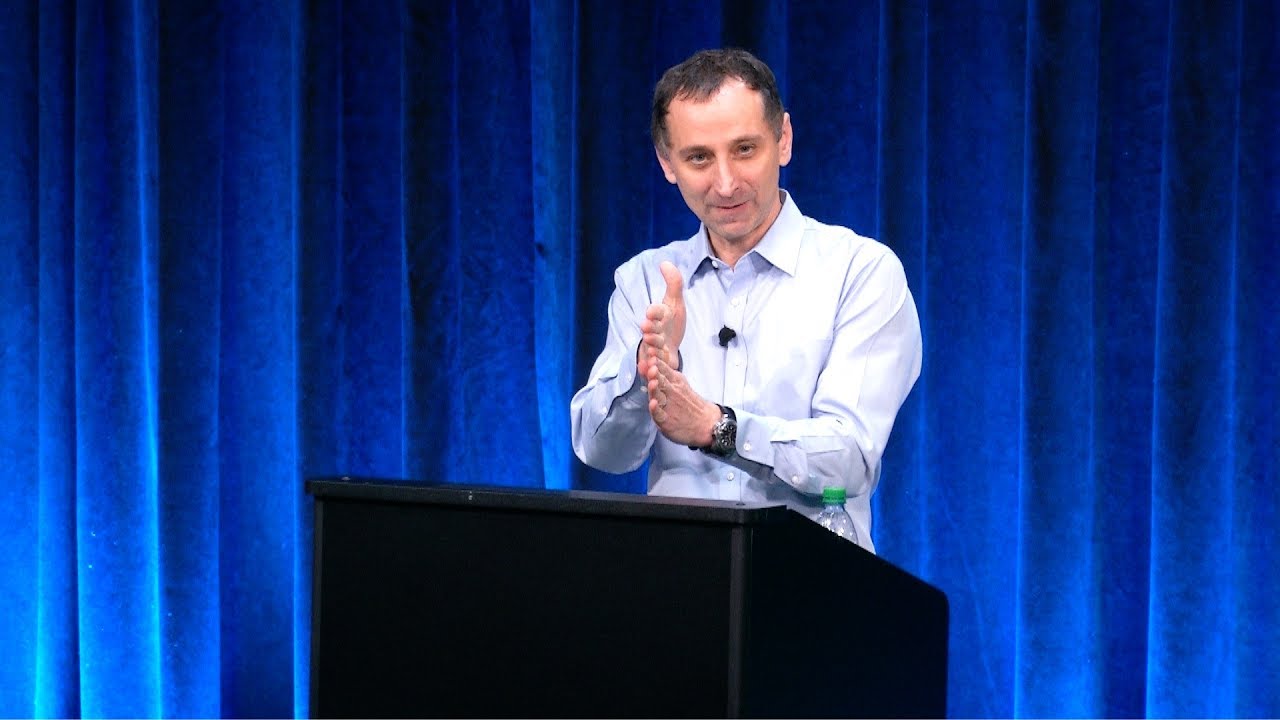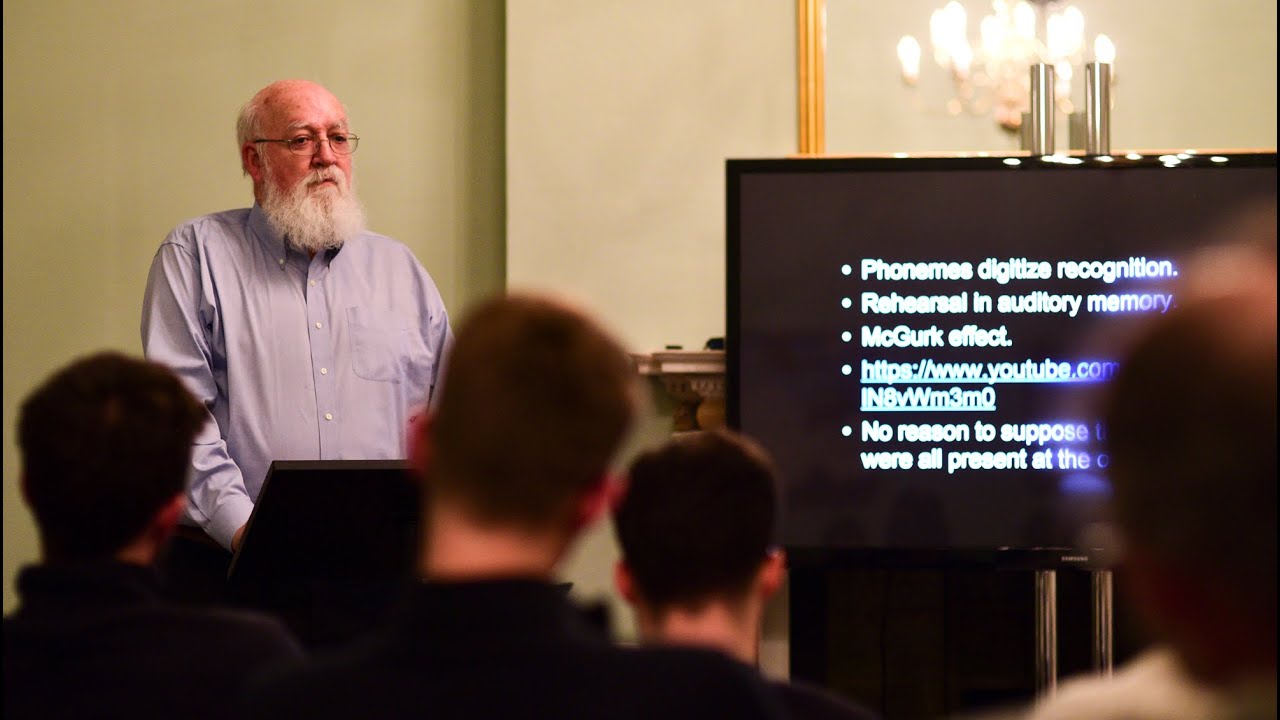The Artificial Intelligence Channel
Sir Roger Penrose explains the impact of his time at Cambridge in the 1950s and the recent developments in Roger Penrose’s thought. The interview brings out his highly unconventional choice of subjects for deep study, which completely ignored the boundary between ‘pure’ and ‘applied’ mathematics. Those familiar with his world-leading development of relativity theory in the 1960s may be surprised to learn how much he was influenced by quantum theory in the 1950s, and also by the early origin of his new ideas.
Roger Penrose explains the influence of Dirac, Sciama and other leading figures of the 1950s, and goes on to characterise the emergence of twistor theory.
Recorded: 2016
Source




Are more comfortable chairs out of budget?
Great video. Didn't understand it much, but it was inspiring enough to wanna watch ot again and get it a bit more. Such a fascinating guy, mesmerizing, with his pictures and all. I loved the interviewer too, so gentle and warm, modest and humorous. Thanxxx.
Spoken with…
Endangered Species.
carl jung triggering mechanisms agni/Ignatius language words/worlds double u-lord singularity agent 488 carl also reflects on gayomart for myself gross usury of alan turing considering ganymedes verse gayomart .alice chalice Charlie Dodgson agni/signal/singularity/ symmetry s-elf-ie great text princeton symbols of transformation fire ceremony . angi singularity oh yea ani's wig the so-called-cone the pineal gland the eye of the god's. nice to know can post photo page write on google+1 'tippe top' up down top bottom strange charm. science of western letters a~z
Automatic subtitle at 39:25: "but the angle burt thing about the pasta frequency, which nobody in quantum field theory tends to stress that at that time…" etc.
Extremely interesting discussion, covering Penrose's mathematical beginning into physics, black holes, Vile curvature, microwave background radiation, big bang and into micro-tubules and consciousness, his work with Hameroff.
He begins with the missing link connecting the gaps of quantum puzzles etc., with Godel's incompleteness theorem and how he was bothered, putting a limit to what we can know.
Godel claims his theorem is true both for logic (based on infinite axioms) and mathematical logic (based on algorithm involving finite axioms). However, as I understand he proved his theorem based on logic (liar paradox or the barber paradox, incorporating the opposite within the proposition) while I never saw proof of any mathematical algorithm leading to his incompleteness theorem ), I believe all mathematical algorithm leads to complete proof within that algorithm (like Turing's halting problem proved on the basis of self-reference, Andrew Wiles proved the famous Fermat's last theorem after three hundred years, yet we still do not know how to prove that every even number is the sum of two primes).
It is not surprising that a giant of a mathematician like Penrose should cover the vast number of topics that he covered in the video. Feynman's QFT and QC [central to possible self-simulation of consciousness, like the transition from non-life to life] is also touched. Human consciousness/intelligence, thanks to Penrose and Hameroff involves QC quality of our senses, pineal gland and even our cells.
The part I liked most is when he explains dimensionality of states (qubits) between the superposed states of 0 and 1, so central to understanding the various puzzles, like the role of an observer in QM, Bell's 'hidden reality', intelligent design or even divine purpose, if not fine tuning the QF.
SMNH.
Jeeny
Given that academia is losing credibility at an ever expanding rate, or more correctly stated, an exponential rate, one would be doing oneself an immense disservice if one did not dismiss it in its entirety and start again. In a growing number of areas where scientific scrutiny has been applied to theories which are only supported by consensus, they are consistently failing. Two notable areas which demonstrate this are "Dark Matter/Energy and black holes and indeed the flawed mathematics and modeling which have supported them. I am an advocate of elitism but such is a principle towards academia as striven but favoring instead a practice of elect[ism]. That is to say, those who are permitted to advance through the academic ranks are those who are able to tow the institutional policy line. This is not, by any stretch of the imagination, science.
Who knows what Penrose has to say on the definition and description of, consciousness, intelligence and mind as universal constants? Or what quantitative and qualitative means to measure the above would he propose or even recommend? Until now, such considerations have eluded the likes of Penrose and his contemporaries and peers.
Any intellectual institutions which concede that some things are intrinsically "unknowable" are institutions which ought never to have enjoyed the prestige they clearly have, in the first place and should have always been avoided like the plague. At the very least, academia should be viewed with the suspicion befitting the enormity of its errors.
How old is the recording?
I LIKE ROGER, I t took me a year to read his book..2004….."The Road to Reality..a complete guide to the physical Universe. 1049 pages of concentrated effort. Thanks.
Great video. Also, what is the opening track?